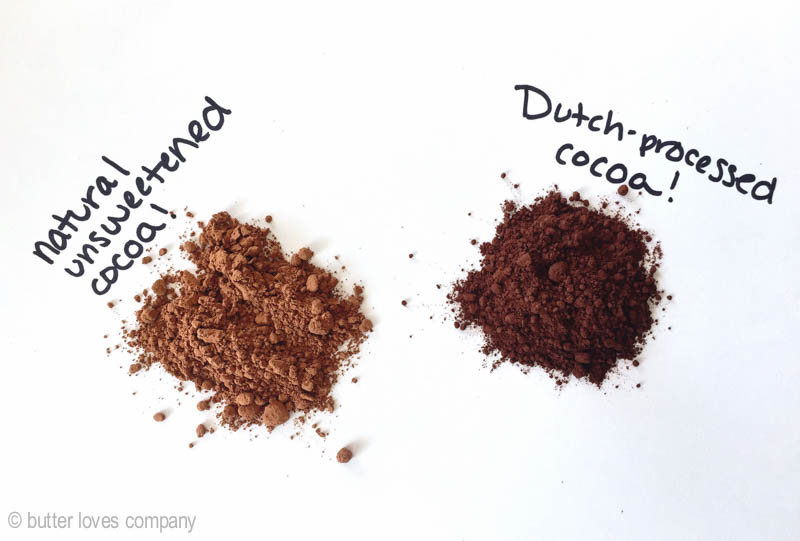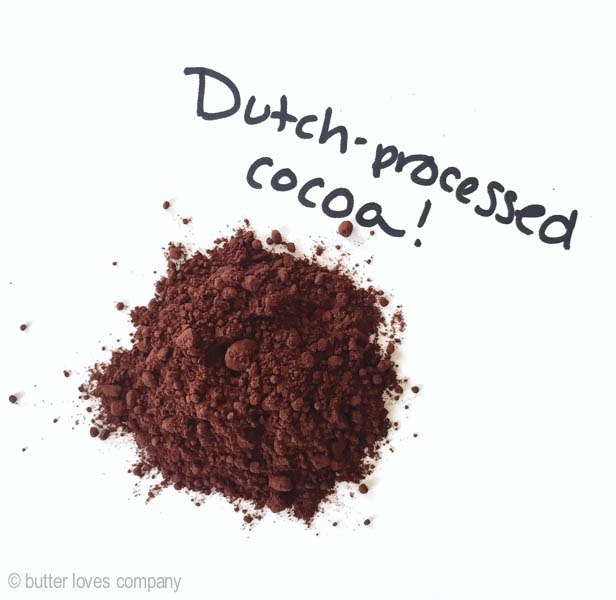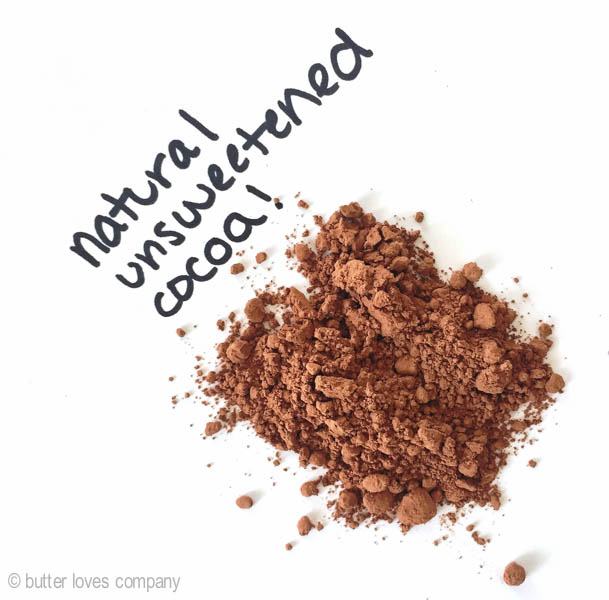 Have you ever noticed some recipes call for Dutch processed cocoa powder and others call for natural cocoa powder? Did you ever wonder what the difference was between the two? And, whether you can use one in exchange for the other? I know I’ve wondered all these things, so I did a bit of research and put my findings together for you here! Cocoa powder worries, no more!
Have you ever noticed some recipes call for Dutch processed cocoa powder and others call for natural cocoa powder? Did you ever wonder what the difference was between the two? And, whether you can use one in exchange for the other? I know I’ve wondered all these things, so I did a bit of research and put my findings together for you here! Cocoa powder worries, no more!
Here’s the 411 on the difference between Dutch-Processed vs. natural cocoa powder:
Dutch Processed (alkalized): Made from cocoa beans that have been washed in a potassium solution that neutralizes their acidity. This gives the cocoa powder a darker color and a generally smoother flavor. Since Dutch processed cocoa isn’t acidic, it doesn’t react with alkaline leavening agents like baking soda. That’s why recipes that use Dutch processed cocoa are usually leavened by baking powder, which has a neutral pH and takes care of the acid component that this type of cocoa lacks.
Features: Acid removed, darker color, smooth flavor, works best with baking powder
Natural (non-alkalized): Think Nestle and Hershey’s unsweetened cocoa powder. Made from cocoa beans that are roasted and then pulverized into a fine powder. Natural cocoa powders generally have a sharp and bitter flavor, a lighter color, and the acid is still present. Recipes using natural unsweetened cocoa powder are usually leavened by baking soda because baking soda is alkaline and reacts with the acidity of the cocoa powder.
Features: Acidic, lighter color, sharp flavor, works best with baking soda
Which do I have?
If you can’t tell what type of cocoa you are using, take a closer look at the packaging. Dutch processed cocoa should say ‘Dutch processed,’ ‘alkalized,’ or ‘processed with alkali’ somewhere on the label or ingredient list. Natural cocoa is often labeled as ‘unsweetened cocoa powder’ or ‘unsweetened natural cocoa powder.’ According to Food52, “Absent the word alkalized or Dutch process on the label, you should be able to assume that the cocoa is natural.”
Can I use Dutch processed and natural cocoa interchangeably?
It depends on what you’re making. If the recipe does not call for a leavening agent such as baking soda or baking powder, you can use whichever cocoa powder you prefer the taste of: Dutch processed or natural (this would be for puddings, hot fudge sauce, ice cream, for example).
If a recipe does call for chemical leavening agents like baking powder or baking soda, things get more tricky. As always with baking recipes, it is best to follow as written or it is possible that things could get wonky with the texture or flavor.
If a recipe only calls for baking soda (and no baking powder), it likely uses natural cocoa (non-alkalized). It would not be a good idea to use Dutch processed for a recipe that calls for only baking soda because the alkalized Dutch processed cocoa would not react with the baking soda because it is also alkaline.
If a recipe only calls for baking powder (and no baking soda), it likely asks for Dutch processed cocoa (alkalized). In a pinch, you can use natural cocoa powder for a recipe that uses baking powder and calls for Dutch processed but you shouldn’t use Dutch processed for a recipe that calls for natural.
If a recipe calls for both baking powder and baking soda, it would be best to use the cocoa listed to get the proper balance of acid and alkaline.
Serious Eats wrote a helpful article about the science behind it all which goes into the different PH levels of the cocoa powders and leaveners.
Hope this helps clear up any cocoa questions you may have!

